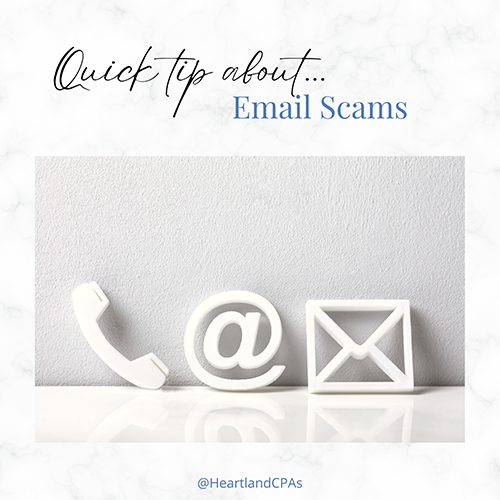Beware of New Email Scams
Scammers are getting smarter!
As public awareness increases, so does the complexity and savviness of the scams. A new method becoming popular uses emails from a boss. In this method, the scammer either uses a fake address or hacks the real email account to impersonate the boss and send messages to the employees. The message will likely make up a story and ask for a favour, which eventually leads to requests for gift cards or sensitive information that will be used to steal your money or identity.
At first glance these emails often look legitimate. It will likely be the correct boss’ name, credentials, job title, company logo, and a plausible story to explain the unusual request. To be successful these scams rely heavily on a sense of urgency and the recipient’s eagerness to follow the boss’ orders. They also attempt to discourage any verification by claiming they don’t have phone coverage or they’re busy in a meeting.
To avoid falling for these scams, here are some practical steps that can be taken by both bosses and employees:
- Never follow instructions to buy gift cards – that’s always a scam.
- Implement a company policy where sensitive information is never exchanged by email unless a form of two-factor authentication is used first (e.g. phone call, security questions, etc.).
- If no company policy exists and an email has suspicious or sensitive requests, always call the boss at their known phone number, regardless of any claims to be unavailable. If unsuccessful, call a manager or supervisor. If no verification can be made, do not follow the email’s instructions. It’s not worth the risk.
- Check all email addresses carefully since scammers often use subtle changes to spellings to impersonate the real ones. If there are any links to websites, also check these carefully for spelling errors to ensure you don’t open a link to a virus.
- Don’t be influenced by urgent or threatening tones in messages. Pause and carefully assess the situation. Ask people around you for advice and make the necessary calls to verify.
- If you know an email is a scam, don’t reply to it. Firstly, a reply shows the scammer your email is in use. Secondly, it’s never a good idea to start an email fight with a scammer, since that may result in them finding ways to retaliate against the company in other ways.
- If you receive one of these emails, notify your boss and coworkers.
- If you’ve fallen victim to one of these scams, report it to your local police as well as the Canadian Anti-Fraud Centre. The CAFC can be reached by phone at 1-888-495-8501 or on their website at the link on this page.
